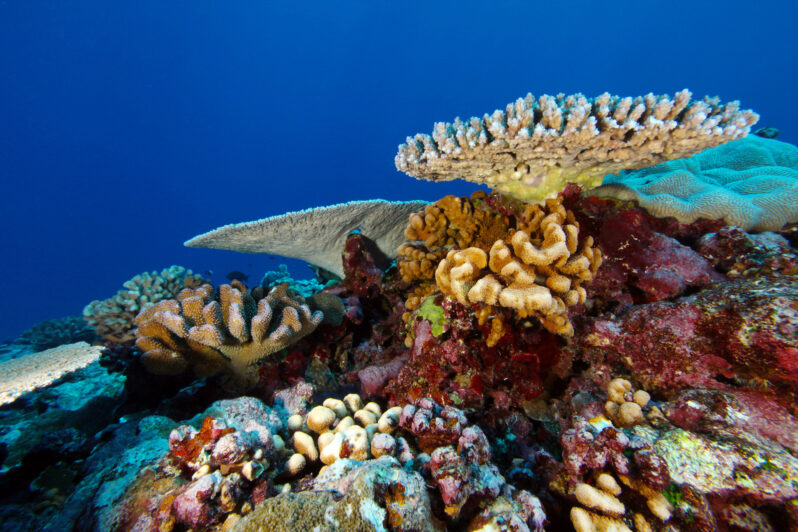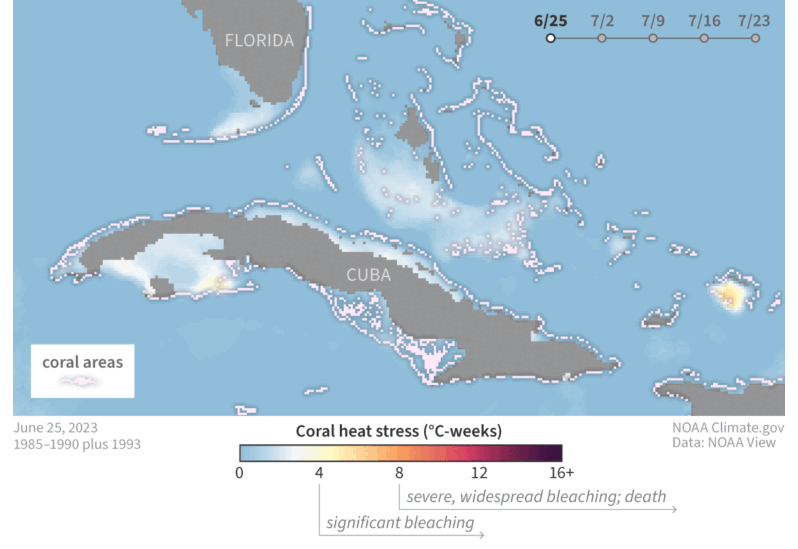One way to save coral reefs? Deep freeze them for the future – NPR

Ocean temperatures have been extremely hot this summer, wreaking havoc on some of the world’s highly vulnerable coral reefs. With marine heat waves only expected to get worse as the climate changes, scientists are increasingly focusing on an emergency plan: collecting coral specimens and safeguarding them onshore….
NOAA and partners race to rescue remaining Florida corals from historic ocean heat wave – NOAA Climate.gov

In mid-July 2023, heat-stressed corals in the southern Florida Keys began bleaching—expelling their food-producing algal partners—amid the hottest water temperatures ever documented in the region during the satellite record (dating back to 1985). As weeks of heat stress have continued to accumulate, bleaching and death have become more widespread, raising fears of a mass mortality event on the region’s already fragile reefs…
